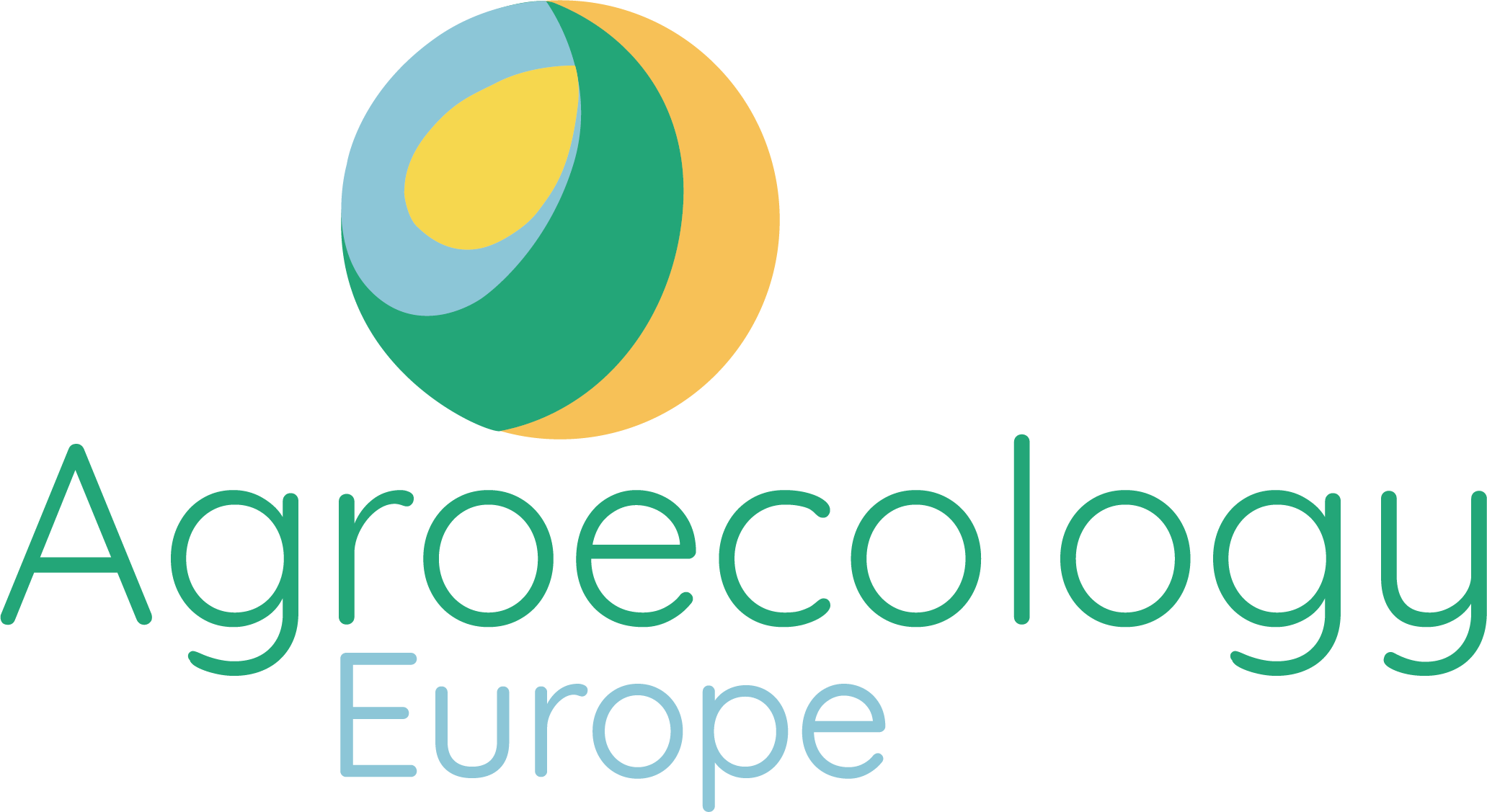Keynote speakers





Alexandra Köves European Society of Ecological Economics
Alexandra Köves is an ecological economist, associate professor at the Corvinus University of Budapest in the Department of Decision Sciences within the Institute of Operations and Decision Sciences. She is also vice-president of the European Society of Ecological Economics.
Ibolya Sáfián Lászlóné shepherd, Hungarian Women Herders group
Ibolya was born into a shepherd family, but started active shepherding with her husband in 1989. She is founding leader of the Hungarian Women Herders group.
Attila Szőcs Boruss, Eco Ruralis, Romania
Szőcs is a passionate advocate for agroecology and improved legislation in support of peasants’ rights and access to land. As a leading campaigner for raising awareness of land grabbing in Romania, he has served as President of the Eco Ruralis Association
Pablo Tittonell, Groningen University, CIRAD
Pablo Tittonell is an agronomist by training who worked both in the private sector and in academic/research organisations. He holds a PhD in Production Ecology and Resource Conservation from Wageningen University and his areas of expertise include agroecology, soil fertility, biodiversity and systems analysis.
WORKSHOP ORGANISErs
WORKSHOP 1: 2024 European elections: how can agroecology become the next paradigm of European agricultural and food policies?
The outcome of the 2024 European elections will pave the way to the next European Commission and future 5-year policy plans of the European Union. What is the political process that will shape the next CAP? Where and how can agroecological voices be heard throughout this year of political and institutional changes? The 2019 elections led to the EU Green Deal and subsequently to the EU Farm to Fork strategy. What more can we hope and dream for so agroecology becomes the new paradigm for European agricultural and food policies ?
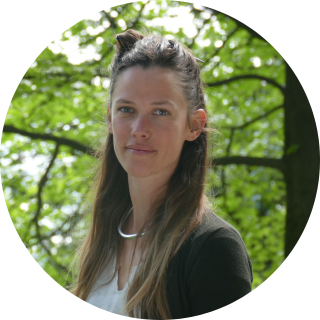

Carolina Modena
Carolina Modena is focal point for biodiversity projects at Slow Food International. “After a Degree in Law at the University of Turin with a dissertation on the right to food, I attended a Master’s on Food Culture and Communitcation at the University of Gastronomic Sciences (Pollenzo, Italy). I joined the Slow Food Headquartiers in the early 2017, with a focus on supporting producers involved in the international food movement. Currently, I am the director of the Biodiversity Office, committed to promoting good, clean, and fair food for all as a tool to guarantee our food sovereignty.”
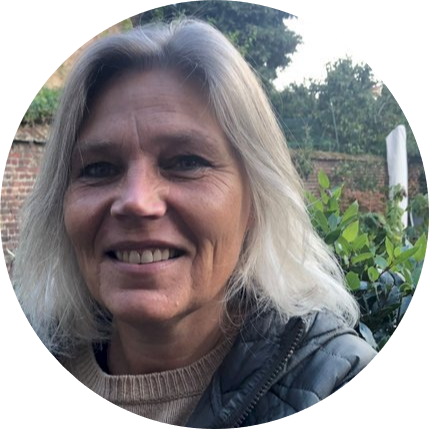

Henriette Christensen
Henriette Christensen is Executive Director of Agroecology Europe. Henriette holds a master degree in Agricultural Economic from the University of Copenhagen, having also studied development economics at the University of la Sapienza in Rome. Henriette has worked in Brussels for over 25 years having worked among others for the European Commission, the European Council of Young Farmers (CEJA) and Pesticide Action Network Europe Brussels (PAN Europe).
WORKSHOP 2: Valuing underutilised crops and wild plants for agroecological transitions
In this workshop, we create space for discussing the potential roles played by underutilised crops and wild gathered plants for agroecological transitions towards diverse and resilient agroecosystems. We first show the contributions of underutilised crops and wild species to the diversification and preservation of agrobiodiversity, provision of ecosystem services, valorisation of biocultural diversity, diversification of diets, enhancement of social sustainability, resilience of local communities and development of alternative food networks. Moreover, we highlight the agronomic, social, political and economic challenges and lock-ins that characterise the cultivation of underutilised crops, the gathering of wild plants and the development of related practices. In the second part of the workshop small group discussions address local best practices and distill recommendations to overcome existing challenges.
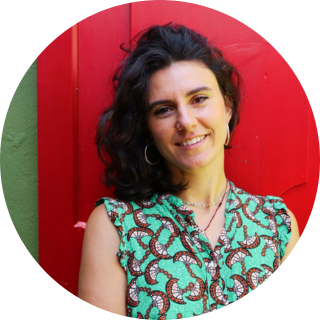


Chiara Flora Bassignana
Chiara Flora Bassignana is a researcher fellow at the University of Gastronomic Sciences of Pollenzo, in the Agroecology group. Her research interests revolve around agroecology, biocultural diversity with a particular focus on mountainous areas, new ruralisms and commons. She holds a PhD in Ecogastronomy, Education and Society from the University of Gastronomic Sciences of Pollenzo.
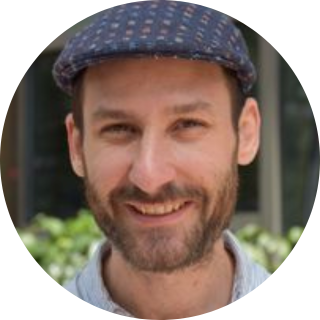

Christoph Schunko
Christoph Schunko is assistant professor at the University of Natural Resources and Life Sciences, Vienna. His research focuses on local knowledge about wild plant gathering in organic farming and beyond. This includes research about the biocultural diversity of wild plant uses, value chains of (organic) wild plant products, ecological and socio-political sustainability of (organic) wild plant gathering, cultivation and domestication of wild plants.
workshop 3: Past, present, and future of soil health by applying agroecological practices
Four PhD students and researchers in agroecology, soil sciences, and water management are going to discuss agroecological practices that improve soil health such as soil inoculation (applying microbes), good practices to avoid soil degradation and erosion, soil management, no-tillage practices, water management and agroecology, animal and human health, social aspect and climate change mitigation.



Jana Marjanović
Jana Marjanović is an Environmental researcher with a specialization in applied Ecology. She is currently a PhD Student at the Doctoral School of Environmental Sciences at MATE University. She is currently working in energy procurement and sustainability business. Her research areas of interest are renewable energy and the application of sustainable practices in agriculture and agroecology.
workshop 4: Challenges and opportunities in self-organized local food provisioning systems: investigating scaling, balance, energy, and solidarity in food communities
Together we will discuss the processes for establishing and maintaining local food system offerings, the pros and cons of different models, and building trust which nurtures enthusiastic consumers while remaining viable for farmers. Central questions on the theme are: what are the practices which have drawn in consumers? What are the realistic capacities for farmers to serve as producers, educators and advocates? What are the challenges associated with maintain enthusiasm within local food schemes? What is the optimal balance of solidarity and/or transactional relationships with food consumers, and how much is it possible to build mutually supporting communities?
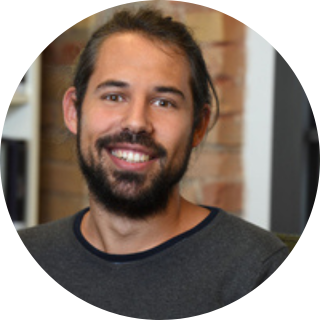

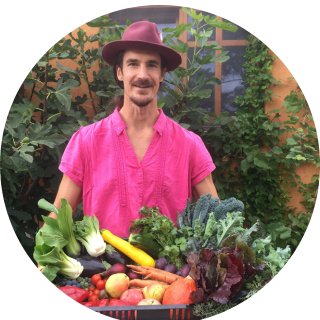


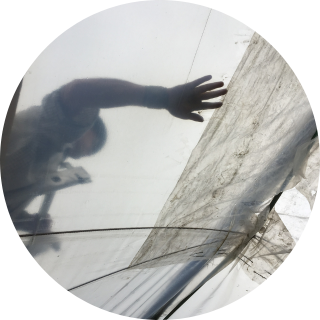

José Luis Vicente-Vicente
Logan Strenchock
Matthew Hayes
Logan Strenchock has been a garden team member at Zsámboki Biokert since 2012, is a Co-Founder of Cargonomia, and the Environmental and Sustainability Officer at Central European University (CEU). He is the president of the Open Garden Foundation and helps coordinate educational outreach programs in coordination with Cargonomia and Zsamboki Biokert team members. He is a member of the Hungarian Agroecology Network and enjoys getting his hands dirty in mixing research and practice in degrowth-inspired experimentation.
Matthew Hayes started out in organic farming in 1984, on a large biodynamic farm in England. He has worked in several countries as an organic vegetable grower, and since 1995 settled in Hungary. For many years he was the farm manager of the organic student farm at Szent István Universtiy, Gödöllő, and was the founding director of Nyitott Kert Alapítvány (Open Garden Foundation), an early promoter of local organic food systems in the CEE region. Matthew, together with friends, set up Zsámboki Biokert in 2011, where he is the overall manager. Matthew tries to promote farmer-to-farmer knowledge sharing.
WORKSHOP 5: Commons, commoners, and food sovereignty: land governance to scale agroecology out and up
The competition for land in Europe is tight, the entrenched cultural norms around resource distribution places private property at the heart of legal systems, obscuring if not directly contradicting human rights values. Against this backdrop, historical land commons particular for Eastern European countries and emerging commoning strategies in Western European countries offer practical approaches to realise land sovereignty. The objectives of this workshop are to highlight diversity of land commons institutions and pre-socialist legacies, discuss contemporary challenges in governing the commons, discuss the importance of land commons for an agroecological transition in Europe, starting from the Romanian case and to explore how land commons and commoning strategies contribute to the democratisation of land in Europe. The underlying assumption that private property is an obstacle in the realisation of an agroecological future opens the discussion on possible alternative property regimes and as a prerequisite for alternative food systems to emerge.
The aim of the workshop is to explore how land commons and commoning strategies contribute to the democratization of land in the European context. In order to do so, we plan
- to share stories from the Romanian context and to find similarities and connect in differences from other territories
- to gather insights from researchers, practitioners and activists on the processes of land commoning and the social and economic implications on the ground in different European countries and
- to discuss strategies that challenge lock-ins for a common agroecological food system at the European level.


Ana-Maria Gătejel


























































Ana-Maria Gătejel is a researcher in the Rights to Land working group at EcoRuralis. “As an active member of the Rights to Land working group, I am working on mapping the possibilities of land commons in the Romanian context. In parallel to my activist work, I am conducting research on food-sharing networks in urban and peri-urban settings at the Rural Sociology Group at Wageningen University. Previously, I obtained a BA degree in European Studies at The Hague University and a MSc degree in Governance of Sustainability at Leiden University.”
Workshop 6: Living Labs
Diverse stakeholders including academics, governmental researchers, policy makers and practitioners, among others, are invited to submit outlines for short impulse on the proposed theme. We would to establish state-of-the-art of LL in EU, share lessons learned from case studies and address challenges facing the european agroecological living lab community. The aim is to generate dialogue among stakeholders, provide a platform for sharing innovative ideas, and create an inspiring space for collaboration and action.
Paola Migliorini is an agroecologist expert and activist. She is convenor of the Master in Agroecology and Food Sovereignty, Course Leader in Agroecology, Sustainable and Organic Agriculture, Coordinator of Agroecology research group with 13 projects. She is the former President of Agroecology Europe (2018-2022) and scientific referent of H2020 AGROMIX project. She is author of 100 technical and scientific publications.
Miloš Rajković is a Research associate at the Institute of Field and Vegetable Crops, National institute of the Republic of Serbia.
Korinna Varga is Head of Agricultural Policy Research Group at the Hungarian Research Institute of Organic Agriculture (ÖMKi), specialized in agricultural and bioeconomy policy. Her area of expertise involves organic farming and agroecology relevant national policy analysis, research, and advisory for achieving the sustainable transition of the agri-food sector. Besides, she also manages ÖMKi’s On-Farm Living Lab; her research work focuses on co-creating experiences in agroecological living labs and upscaling multistakeholders networks, while she works toward the wider adoption of the “living lab” approach and methodology in national agricultural research.
WORKSHOP 7: Territorial approaches to the agroecological transition
In this collaborative workshop, the audience will learn about different territorial approaches to the agroecological transition and explore some of the most pressing challenges that emerge while steering agroecologic initiatives on the ground, as well as discuss potential solutions.
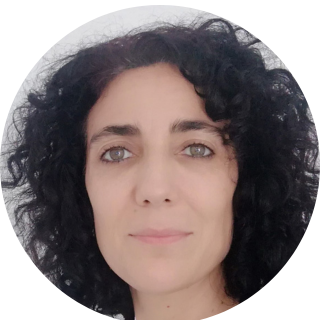



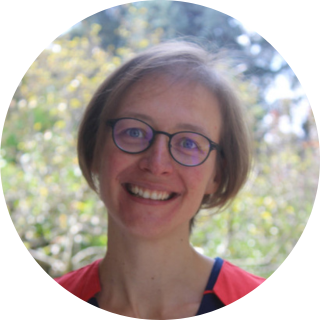

María Ramos García
Verónica Rebollo Díaz
Perrine Vandenbroucke
Agronomist specialised in biodiversity and agroecology, linked to the spanish agroecological movement for over 20 years. She is currently working as a researcher at the Center for Organic and Mountain Agriculture in CICYTEX (Regional Farming Research Center in Extremadura, Spain) and collaborates with Alimentta as founding member since 2019.
Verónica Rebollo Díaz’s role is Projects and Strategic Alliances at Alimentta, Think Tank for the Sustainable Food Transition. She has a BSc in Biology, MSc in Sustainable Management of the Environment and MA in Social and Cultural Anthropology. In Alimentta, she works in project acquisition and coordination, stakeholder engagement and cooperation, and she coordinates Alimentta’s Living Lab strategy.
WORKSHOP 8: Agroecological approaches to the use of nutrients and the maintenance of soil health, with contrasting experiences from Europe, Africa, Asia and Latin America, incorporating results of recent metanalyses
The recent aggression from Russia on Ukraine disrupted the crops nutrient supply. On one hand, it can potentially induce a crisis of reducing the supply of nutrients and therefore the yields. On the other hand, it opens the possibility to use different approaches for nutrient management in agriculture – organic sources, recycling, use of legumes, etc. How are farmers, organizations and regions are reacting on this needs to be better explored. The roundtable wants to bring together colleagues that can report from different regions about what is happening, and which are the agroecological strategies that ere being used.


Matthias S. Geck
Dr. Matthias S. Geck is
Agroecological Systems Scientist at CIFOR-ICRAF, Nairobi. He is Coordinator of the Transformative Partnership Platform on Agroecology, Work Package 2 Co-lead for the CGIAR Agroecology Initiative, and Project Lead for the Agroecological Transitions Programme.



MARCOS LANA
Marcos Lana is Secretary General of Agroecology Europe and Associate Professor at SLU. His work focuses on the use of crop models to assess the impact of climate change and agronomic management on crop performance, so as to propose suitable adaptation strategies concerning crop production systems and other ecosystem services. He is also involved with the development and adoption of agroecology as a tool to support sustainable farming systems.
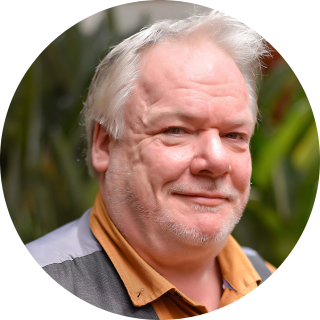

Fergus Sinclair
Fergus Sinclair is Chief Scientist at CIFOR-ICRAF (Center for International Forest Research – World Agroforestry) based in Nairobi through collaboration with Bangor University, UK and Co-convenor of the Transformative Partnership Platform on Agroecology. He is Honorary Professor at CATIE (Centre for Agricultural Research and Higher Education) in Costa Rica and Honorary Editor of Agroforestry Systems and was project team leader for the UN Committee on World Food Security (CFS), High-Level Panel of Experts (HLPE) report on agroecology published 2019. His transdisciplinary research is focused on combining local agroecological knowledge with formal science, measuring and modelling the performance of complex social-ecological systems, and the development of practical methods for supporting local agricultural innovation over large land areas and numbers of people while addressing fine scale variation in farmer context.



Amelie Steu
Amelie Steu is Associate Coordinator at the Agroecology Coalition, whose role is to build strategic alliances and networks to scale out Agroecology. “I am a young professional driven by the shift towards organic and agroecological food systems in order to address some current challenges such biodiversity loss, climate change, social inequities and food insecurity. I worked for 3 years at IFOAM Organics Europe in the Policy and Partnerships Units. I also undertook an internship at IFAD during my Masters’ Degree in Governance of International Relations at Sciences Po Toulouse.”
WORKSHOP 9: Walking the agroecological path through feminism
Agroecology inherently encompasses a commitment to rethink unequal power dynamics in food systems, therefore the agroecological approaches cannot be discussed without addressing the power (im)balances based on gender and other axes of marginalisation that embed food systems and their actors and stakeholders. This workshop aims at creating a space for sharing perspectives, challenges and methods of studies in agroecology with a strong focus on gender and feminist dynamics involved in the research topic, methods and approaches. Contributions on how taking a feminist approach to agroecological transformation addresses the myriad ways in which gender intersects with all aspects of food systems, not just their social dimensions are welcomed. This workshop will also try to share answers and experiences on how agroecological perspectives meet feminist ones in building a research itself, regardless of the specific research questions and on how research materials and methods, structure, organisation reconfigure with a feminist and agroecological research approach.



Chiara Flora Bassignana
Chiara Flora Bassignana is a researcher fellow at the University of Gastronomic Sciences of Pollenzo, in the Agroecology group. Her research interests revolve around agroecology, biocultural diversity with a particular focus on mountainous areas, new ruralisms and commons. She holds a PhD in Ecogastronomy, Education and Society from the University of Gastronomic Sciences of Pollenzo.
Jesse Donham is a research fellow at the University of Gastronomic Sciences of Pollenzo. Jesse earned a BA in Political Science and Environmental Science from the University of California Berkeley and a Master’s Degree in International Relations with a focus on agriculture and food security from the University of Melbourne. Before UNISG, she was a researcher at Agroecology Europe, worked in government bodies, at NGOs such as the Food Sovereignty Alliance in Australia, for a magazine on environmental and agricultural issues, and on the field.
International business lawyer Perrine Bulgheroni started a farm in the Normandy village of Le Bec-Hellouin that slowly became a profitable 20 hectares organic farm. Perrine has now left the farm and helps other farmers. She gives advice in France and abroad as to how to secure food production in a multiple crisis context and is looking forward to creating a new cooperative project. She also teaches and gives conferences. Perrine was an elected member of the Normandy parliament from 2010 to 2016.
WORKSHOP 10: Connecting local agroecological initiatives with scientific research in Europe
This workshop will discuss how to effectively organize innovation-oriented research projects as interventions in complex socio-technical change processes. Agroecology-TRANSECT Horizon Europe project aims to unfold the full potential of agroecology for European agriculture. To do so, it is teaming up knowledge and expertise in 11 multi-actor Innovation Hubs (IHs) that have been engaged in agroecological transitions for multiple years, with engaged analysis-oriented scientists using a complexity-aware co-innovation approach for its governance. The IHs cover a diversity of farming systems and agroecological practices and principles; the scientists come from various areas of the natural and social sciences.
As a young bioengineer in agronomic field, Adrien Swartebroeckx began his career working on a local cereal network for a brewery. He then jumped on the Agroecology-TRANSECT project and is now coordinator of the CRA-W (Belgian research center) team for this project.
Darleen van Dam holds a Bachelor’s degree in Plant Science and a Master’s degree in Rural Innovation, which have equipped her with interdisciplinary knowledge and social science methods to explore agricultural transitions. As an action researcher at Wageningen Research she has been involved in various national and international projects. Her engagement in the Agroecology-TRANSECT project focuses on supporting the learning platform and its diverse agroecology initiatives.
Workshop 11:
Practical applications of One Health: Ecosystem building through engaging local communities, citizens, and authorities
During this workshop we are going to explore the practical applications of One Health. We’ll learn how having One Health as a pillar we can build a resilient ecosystem through the engagement of local communities, citizens, and authorities.
Cristina Laurenti is researcher on sustainable food consumption at FiBL and co-founder of the Coalition of Health Profesionnals for Regenerative Agriculture (CHPRA), a movement of health professionals aiming to accelerate regenerative healthcare. She is a Board member of Agroecology Europe and Coordinator of theAgroecology Europe Youth Network. She holds a Bachelor’s degree in Dietietcis and Master degree in Agroecology and Food Sovereignty at UNISG. With passion, unique perspective and knowledge she embodies the link between agroecology and nutrition.
Eirini boasts a diverse background in both Life Sciences and Business, and has recently gained expertise as an Integrative Nutritionist. Her extensive experience in various aspects of the food system has provided her with a comprehensive and multidimensional understanding. Presently, Eirini holds the position of Comms & Insights Officer at the NGO, Sustainable Food Destination Organisation (SFDO), and is proud to be one of the co-founders of CHPRA.
Workshop 12: Climate action as a driver for agroecology in Central Eastern Europe: exchanging experiences and building alliances
This workshop aims at presenting and discussing the results of a research project analysing Common Agricultural Policy Stategic Plans in 11 CEE countries, along with a needs assessment for capacity building. The workshop will strengthen the collaboration and exchange of experiences among stakeholders in order to support strategic planning for climate neutral and resilient agri-food systems and improved exchange and capacity building for nature-based climate action in Central Eastern Europe.
Ana frelih-larsen
Dr. Ana Frelih-Larsen is a Senior Fellow at Ecologic Institute, where she coordinates activities on agriculture and soils. She has worked extensively on the evaluation and development of policy instruments for soil health, carbon farming, and more broadly mitigation and adaptation in agriculture. Her work in particular focuses on policies that support the implementation of nature-based solutions in agriculture. A native of Slovenia and fluent in German and English, she has a strong geographic interest in Central Eastern Europe.
Currently, she leads a project on Capacity Building for Ambitious Climate Action in the Agri-food Sector in Central Eastern Europe, funded by the Robert Bosch Foundation.
Workshop 13: Agroecology "Schools Without Walls": trust, feeling, territory, and the education of eco-political concern
Agroecology Schools have become strategic spaces of social movements for scaling up agroecology, strengthening the work for food sovereignty and engaging people, especially youth, back in local food system work. An Agroecology School is a self-organised safe space where farmers share knowledge and wisdom on a peer-to-peer principle. The School’s methodology is rooted in years of experience of the work done by La via Campesina in the methodology campesino-a-campesino. Being autonomous of governments or formal adult education institutions, Agroecology Schools bridge the gap between practical and theoretical knowledge, as well as technical and political skills and provide a platform to unite learning and knowledge-sharing with action research and civic engagement. They are holistic and empowering, including two-way learning processes between policy makers, researchers and farmers to build strategic networks and prioritising peasant knowledge at the heart of food system transformation. In this workshop we will explore three critical dimensions of Agroecology Schools’ learning process dialogue of diverse knowledges: trust, feeling and territory. These three aspects of popular education in agroecology are critical for shaping and reflecting about shared eco-political concerns. We will review strategies in which each, trust, feeling and the connection to territory can be strengthened and mutually connected in a learning process to deepen the bonds of reciprocity between learners and their land and activate political vision for collective action.



Andrea Ferrante
Andrea Ferrante is an agroecologist and freelance consultant on agricultural policies and agroecology. Mr Ferrante has over 20 years’ experience in international food and agriculture policy development and rural development. He has extensive experience in working with and supporting small-scale food producing organizations globally, including in policy processes at national, regional and international level. Additionally, Mr Ferrante has 20 years’ experience in running an organic family farm and actually member of a Bio social coop running a farm in Viterbo province (Italy). He is the Coordinator of the Schola Campesina Aps, International agroecology school based in the Biodistretto della Via Amerina e delle Forre (Civita Castellana, Viterbo, Italy).
session presenters
session 1: Multi-level policy initiatives to reshape the CAP
Scaling agroecology in East Europe—how to start the transition process
In Eastern Europe agroecology can have great potential for agricultural transformation. Designing and guiding the transition process, starting from local value chains, with different sets of agroecological principles (HLPE, FAO) can enable agroecology to provide key elements for transforming food production systems that can be the cornerstone of development schemes to improve food security and nutrition in the future.


Srdjan Šeremešić
Prof. Dr Srđan Šeremešić has received basic training in agronomy and is currently a full professor at the University of Novi Sad. “My research focuses on sustainable agriculture, organic agriculture, cropping systems and soil management. Since the beginning of my research career, I have been working with different ecological approaches to archive tangible improvements in the field of safe food production and agroecology.”
Environmental attitudes and motivations of farmers: behavioural and economic drivers and barriers to green change in agriculture
In addition to the development of the right policy incentives, the willingness of farmers to participate is a crucial prerequisite for the successful implementation of policy objectives. My presentation will share the results of a comprehensive research on Hungarian farmers’ environmental knowledge and attitudes about green agricultural reforms and their intentions as well as barriers to act, with the aim of supporting a more environmentally effective implementation of the future CAP.


Eszter Takács
Mrs. Eszter Takács is a Researcher (Climate and Environmental Research Department) at the Institute of Agricultural Economics Nonprofit Kft. (AKI). She graduated in 2003 as an agricultural engineer in environmental management at the University of Agriculture and Life Sciences in Hungary and is also a biology teacher. She started her career in the field of environmental education, later she gained experience in the management and professional implementation of nature conservation and agricultural research projects. Working at AKI for the last 8 years, she is involved among others in the environmental analyses of the CAP implementation, as well as in national and international research on sustainable agricultural production methods.
Fostering cooperative agroecological approaches to restore biodiverse, resilient cultural heritage landscapes and improve food security in Europe
The roundtable will discuss views/perspectives from different stakeholders on well-functioning agri-environmental measures and incentives that foster cooperative approaches and agroecology practices. Participants will then be invited to collect suggestions for improving current EU agri-environmental regulations and financing schemes that could feed into the next CAP negotiations with EU MS.


Zsolt Szilvacsku
Dr. Zsolt Miklós Szilvácsku is Assistant professor Department of Landscape Planning and Regional Development at the Hungarian University of Agriculture and Life Sciences (MATE). He has worked on the development and regulation of environmental impact assessments, led the nature conservation work of Birdlife Hungary, relaunched the Association of Hungarian Nature Parks and established and managed the Land Stewardship Advisory Service, which helps to conserve and manage agricultural lands, forests and wetlands. As a small-scale farmer himself he brings together the environmentally friendly farmers of the nature parks and to strengthen and disseminate their knowledge and experience in the Carpathian Basin. He teaches at universities, works as a consultant on agri-environmental and other environmental topics and serves as a Board Member of Landcare Europe.
Carbon farming credits—Stakes for the agroecological transition in Europe
Recent policy developments have again raised the profile of agricultural carbon markets and carbon credits as a climate solution and a tool to finance the transformation of the agriculture sector. But the EU proposal for a Caron Removal Certification Framework, threatens to undermine climate objectives and an agroecological transition in Europe, rather than being part of the solution.


Sophie Scherger
Sophie Scherger is Climate and Agriculture Policy Officer at the Institute for Agriculture and Trade Policy (IATP). As policy officer at IATP’s European office, Sophie examines the links between agriculture and the climate crisis and advocates for a holistic just transition towards a food system that takes the multiple challenges of the climate crisis into account and debunks false solutions. Her recent work spotlights the developments and risks posed by EU and international policies related to carbon markets for agriculture.
Potential of eco-schemes for the agroecological transformation in northern Italy
The presentation is about the potential application of the five echo-schemes mentioned in the Italian Strategic Plan by farmers in Piedmont (Italy). The study analyses connections between farmers’ demographic factors and their interest and willingness to apply the eco-schemes.


Natalia Rastorgueva
Natalia Rastorgueva, PhD, is a research fellow of the AE4EU project at the University of Gastronomic Sciences, Pollenzo, Italy. Her research focuses on the agroecological living labs and the international agricultural policies.
MODERATOR
During Session 1 the speakers will present their knowlege related to the eco-schemes, farmer’s motivations, national and international experiences to scale up agroecology, and risks and benefits from carbon farming. They will explore opportunities and bottlenecks for farmers to accompany the European process of scaling up agroecology at the political level.


Caterina Batello
Caterina Batello is an Agroecology Expert, Board Member of Agroecology Europe (AEEU) and Vice President of Agroecology Italy (AIDA), and the former Team Leader, Agroecology and Ecosystem Management of FAO (Food and Agriculture Organisation of the United Nations). She spent most of her career in international agricultural development and she is author of a number of books and papers related to the management of biodiversity, livestock and ecosystem services, capitalizing on natural biological processes in different ecologies (tropical, temperate arid and mountain zones). Under her leadership a “Scaling up Agroecology Initiative” was developed and launched with UN agencies and National Research Institutions, and an important political consensus on Agroecology was approved by 147 countries in 2019 by the FAO Council.
session 2: Innovative farming practices
Restoring and valuing traditional agricultural knowledge and crop varieties
How can we improve organic farming by looking at the past? By using faba bean and pea intercropping as an example, I will share my experience of how I created a research project inspired by a historical farming practice in Sweden.


Dylan Wallman
Dylan Wallman is a horticultural scientist from Sweden specialised in organic plant breeding and agrobiodiversity facilitation. He is currently pursuing a PhD at the Dept. of Biosystems and Technology at Swedish Agricultural University (SLU), where he is intercropping peas with faba beans and/or cereals in organic farming systems.
Mycorrhizal fungi: from natural diversity to inoculation and beyond
Diversity of mycorrhizal fungal species are one of the main prerequisites of a healthy soil, as they are the most important connection of plant roots and the soil. Results on natural diversities and the possible role of commercial mycorrhizal inocula will be discussed.
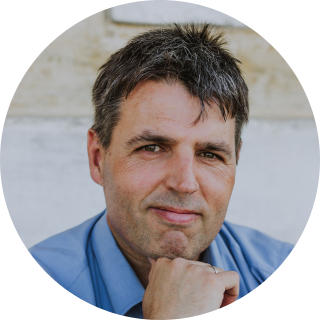

István Parádi
István Parádi is an assistant professor at the Department of Plant Biology and Molecular Plant Biology at ELTE, where he has been researching and teaching plant biology for 25 years and spent several years in research institutions abroad (Netherlands, Switzerland, France). His main areas of interest are plant-microbe symbioses and plant stress biology. In 2022, he co-founded ExperiPlant Ltd. that aims to combine rigorous scientific approaches with agricultural practice, in particular in the development of sustainable and bio-based solutions.
Food production and landscape value: silvopasture as a possible sustainable livestock production system
Breeding and farming with an agroecological approach could contribute to a maintenance of a beautiful and productive landscape. The study of the relationships between trees, pastures, animals and humans is essential to ensure high animal welfare, sustainable farm management, healthy lives for farmers and food quality, in a regenerative process. Therefore, the results of the researches carried out on the silvopastoral Tenuta di Paganico farm as part of the Horizon project “Agromix”, are described.



Jacopo Goracci
Jacopo Goracci is a farm manager at Tenuta di Paganico Farm, Paganico (GR), Italy. “I’m an agronomist and have lived and worked for 18 years on the Tenuta di Paganico, an Italian organic silvopastoral farm. I’m curious, I love research applied to agro-ecosystems and to the connections between humans, animals, and landscape.”
Fermented forest litter (FFL)
Fermented forest litter (FFL) is a natural biostimulant derived from peasant know-how, inspired by the effective micro-organism (EM) technique in agriculture developed in the 1980s by Professor Higa in Japan. Quite unknown in Europe, it has been passed on to peasants in several Latin American countries since 1990, with the aim of boosting soil life and protecting crops by reducing external inputs. Ongoing scientific studies shed light on its mechanisms of action, and a network has been formed in France to share this knowledge and continue research between peasants and researchers. Some results indicate FFL leads to:
- Better vegetative growth and root system development in crops,
- Better assimilation of nutrients by plants,
- Improved soil and plant resistance to water and heat stress,
- Better soil structure: formation of aggregates and therefore better drainage.


Ole Ostermann
Ole Ostermann was a policy co-ordinator at the Joint Research Centre (JRC)—the science and knowledge service of the European Commission. Ole is an ecologist and biologist by training and holds a PhD in agronomy from his studies in Hamburg, Montpellier and Göttingen. He had previously worked in protected areas, and for four years at the European Topic Centre for Nature Conservation in Paris, for the European Environment Agency. Since 2019, Ole retired and is now experiencing agroecological olive farming in the south of France. Ole is also member of the administrative board of a French NGO, Terre & Humanisme, active in agroecology training.
Tomato landraces—a success story
By 2016, ÖMKi had tested 35 tomato landrace varieties in different regions of the country and by 2022, 24.000 plantlets had been distributed to gardeners through a supermarket chain. How did this success story unfold? This is what the presentation will show.


Orsolya Papp
Orsolya Papp is research leader at the Hungarian Research Institute of Organic Agriculture (ÖMKi). “At ÖMKI, I have been carrying out various horticultural on-farm research in collaboration with farmers for more than 10 years. Besides the research work, I also run a certified organic farm in Zsámbok, which, in addition to the production activities, also performs landscape variety conservation tasks as a Magház HUB and NBGK on-farm partner.”
moderator
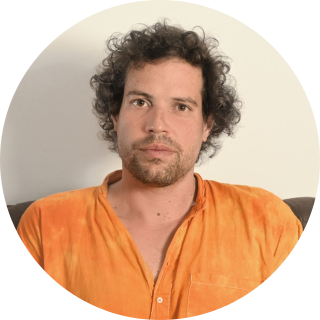

Márton Bruder
Márton Bruder is a farmer in the Hungarian Agroecology Network. Márton has a backgroung in agriculture and environmental protection. He runs an organic farm in Törökbálint since 2016; the farm focuses on animal husbandry, mainly grazing cattle. He is also involved in the Hungarian permaculture movement.
session 3: Transforming education and extension services: from top-down knowledge transfer to more horizontal farmer-to-farmer approaches
ERASMUS+ to create a network of farm schools in Europe
EUfarms is embarking on ERASMUS +. In the learning farms, the trainers will be the founders, producers, breeders, processors, and sellers of the farms. The Erasmus+ programme will enable farmers and project leaders to share their knowledge in a friendly, professional network.



Emilie Rousselou
Emilie Rousselou co-founded the Spiruline arc-en-ciel farm in 2013. She is a founding member of EUfarms. She heads EUfarms, the European network of agro-ecological farms. She is involved in a number of associations active in the farming world and advises on the design of agro-ecological projects.
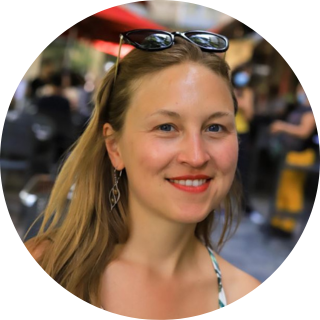


Aurélie Tacquard
Aurélie Tacquard is an international agri-development engineer. She is project leader in agroecology and protection of water resources and founding member of EUfarms.
Knowledge gaps as barriers in agroecological transitions: Lessons learnt from UNISECO
The paper is an attempt to examine the issue of knowledge in the process of transition towards agroecological farming systems. During our research work for UNISECO we identified knowledge gaps and, therefore, needs to be addressed during the transition.
Authors: Alexandra Smyrniotopoulou, George Vlahos, Gerald Schwartz, Alex Koutsouris


Dr. George Vlahos
Dr. George Vlahos is assistant professor in the Agricultural University of Athens and has collaborated in various research projects focusing on rural and agri-environmental policies. He is author of various articles on these subjects and collaborated in books. He is currently chairing the Board of Trustees of WWF Hellas.
Horticultural farmers’ views on and experience with the practical application of agroecological solutions in Latvia
The presentation highlights results of a collaborative interdisciplinary research project carried out in Latvia exploring the agronomic and social aspects of technological solutions such as intercropping, catch crops, cover crops, and green manure application aimed at ensuring the enforcement of the Green Deal in horticulture. Based on 19 in-depth interviews with practising farmers, the author analyses their experiences and views regarding the adoption of these technologies and sources of horticultural information and knowledge.


Anda Adamsone-Fiskovica, Dr.sc.soc.
Anda Adamsone-Fiskovica is Senior researcher at the Baltic Studies Centre (Riga, Latvia) and has an academic background in sociology and social studies of science and technology. Her current research interests cover topics related to agricultural knowledge and innovation system, farmer learning and decision-making, multi-actor collaboration, circular use of bioresources, social aspects of food production and consumption, and digitalisation.
A Roadmap Towards Action Education: The Nextfood Approach
This paper builds on extensive empirical work within the Nextfood H2020 research project (2018-2022) on education in agri-food systems, which encompassed 19 partners, 13 countries, and three continents. Action research was conducted on the transition to experiential and action-oriented education in 12 cases, of which the majority dealt with agroecology. An important outcome of the project was a roadmap towards action education. The roadmap depicts various signposts, each representing a step towards creating the foundation for educating professionals with competences needed to foster sustainability in farming and food systems.
Two decades of action education in agroecology: Impact of an agroecology course on alumni’s professional and personal life
Action education in agroecology is at the core of the necessary transition towards sustainability in food systems, due to its holistic and change-oriented approach and the aim to equip students with the necessary sustainability competences, as well the aim that the students should end up as individuals who can think for themselves and take responsibility for their actions. In 2022, we did a survey of all the students that had participated in the agroecology master’s programme at NMBU since the start in 2000. The aim was to explore the students’ view on the impact that the programme´s introductory whole-semester course has had on their professional and personal life.
Geir Hofgaard Lieblein


Geir Lieblein is Professor of Agroecology, Norwegian University of Life Sciences (NMBU).He has been program leader for the Agroecology MSc program at NMBU since it started in 2000. He has facilitated educational development in agroecology in several countries in North and South America, Europe, Africa, and Asia. His research encompasses recycling of organic matter in tropical agriculture, food quality including medical implications, farming and food systems development, as well as action education in agroecology.
moderator



Logan Strenchock
Logan Strenchock has been a garden team member at Zsámboki Biokert since 2012, is a Co-Founder of Cargonomia, and the Environmental and Sustainability Officer at Central European University (CEU). He is the president of the Open Garden Foundation and helps coordinate educational outreach programs in coordination with Cargonomia and Zsamboki Biokert team members. He is a member of the Hungarian Agroecology Network and enjoys getting his hands dirty in mixing research and practice in degrowth-inspired experimentation with a diverse team of collaborators living in Hungary and across Europe. At CEU he serves as a co-instructor within the Political Ecology of Food Systems and Introduction to Agroecology and Organic Gardening Systems courses.
sessions 4a & 4b: Agroecology initiatives and Living Labs in Europe: experiences from AE4EU
In this session, you will hear from agroecology initiatives all over Europe that were mapped under the Horizon project Agroecology for Europe (AE4EU).
Mapping agroecology in Europe provides an overview of the situation on the ground and shows the reality of agroecology in different European countries. This mapping is illustrative, synthesizing and providing key information on the road to building a common understanding of agroecology, as well as its development at the European level.
Moderators


Alexander Wezel
Dr. Alexander Wezel is Head of Research and Professor for Agroecology and Landscape Ecology at ISARA, Lyon. He is part of the Research Unit: Agroecology and Environment and is the Coordinator of MSc Agroecology at ISARA. His expert experiences include being a Member of the High Level Panel of Experts on Food Security and Nutrition (HLPE), FAO


Vasileios Gkisakis
Dr. Vasileios Gkisakis is an agronomist – researcher at the Hellenic Agricultural Organisation (ELGO) – DIMITRA (Greece), working on Mediterranean tree crops and olive production as well as agroecology, organic farming, and sustainable production systems. He is a Board member of Agroecology Europe and moderator of the Greek Agroecological Network.
session 5: Building strategic alliances: the role of networks in scaling agroecology
The EUFarms Network: objectives, members, actions
This network is initiated by farmers working with ecosystems. These farms are economically and humanly viable and their prosperity is ensured by the regeneration of social and environmental ecosystems. Their surface area is greater than 30 ha, or smaller and in a territorial dynamic; they are certified in Organic Agriculture and they also have in common that they have developed at least two interconnected production workshops and a processing/sales workshop.



Emilie Rousselou
Emilie Rousselou co-founded the Spiruline arc-en-ciel farm in 2013. She is a founding member of EUfarms. She heads EUfarms, the European network of agro-ecological farms. She is involved in a number of associations active in the farming world and advises on the design of agro-ecological projects.



Aurélie Tacquard
Aurélie Tacquard is an international agri-development engineer. She is project leader in agroecology and protection of water resources and founding member of EUfarms.
Discourses of key European actors of civil society involved in agroecology
We examined main social movements (NGOs, farmer unions, etc.) working on agroecology, at European or state level, across Europe and explore how agroecology is being conceptualized, and how do agroecological narratives dialogue with topics around biodiversity, climate change and socio-economic resilience.


Raquel Luján Soto
Raquel Luján Soto is a Dr. in Natural Resources and Sustainable Management at INGENIO (CSIC-Universitat Politècnica de València), Spain. “I am an agroecologist specialized in sustainable soil management and farming systems ecology. My research focuses on understanding the contributions of sustainable agroecosystem and soil management to livelihood resilience, biodiversity and ecosystem services. I develop inter- and transdisciplinary research using participatory methods and multistakeholder processes to enhance social learning, capacity building and support agroecological transitions.”
European Network for Agroecological Food Systems (ENAF): Activating the combined potential and capabilities of existing national and European networks related to agroecology
In this meeting we present and discuss the formation of a European Network for Agroecological Food systems (ENAF) that brings together European networks working on agroecology such as Slow Food Europe, La Via Campesina Europe, Agroecology Europe and national agroecology networks such as Eco Ruralis and the Agroecology Network Netherlands to meet online and live on a regular basis to ensure a stronger voice and influence in relation to policy and research agendas and to facilitate knowledge exchange.


Dr. Margriet Goris
Margriet Goris is researcher of social science interfaces of Agrosystems at Wageningen Research and post-doc researcher at the Rural Sociology Group of Wageningen University.
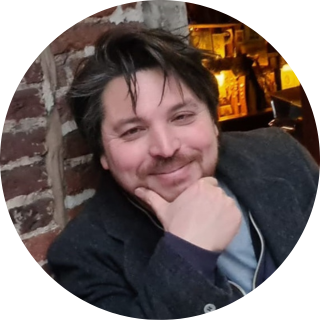

Leonardo van den Berg
Leonardo van den Berg is one of the coordinating committee members who is responsible for agroecology within the European Coordination of La Via Campesina. He is also active in the steering committee of Toekomstboeren and the Dutch Agroecology Network and initiator of the Dutch Federation of Agroecological Farmers.




Attila Szőcs Boruss
Szőcs is a passionate advocate for agroecology and improved legislation in support of peasants’ rights and access to land. As a leading campaigner for raising awareness of land grabbing in Romania, he has served as President of the Eco Ruralis Association.
A framework for coordinated action towards sustainable food systems: learnings, challenges, and opportunities for collaboration
In this session, Alimentta will share a few insights from its experience building and strengthening collective action for the agroecology uptake, reflecting on lessons learned and future opportunities for international cooperation.


Verónica Rebollo Díaz
Verónica Rebollo Díaz’s role is Projects and Strategic Alliances at Alimentta, Think Tank for the Sustainable Food Transition. She has a BSc in Biology, MSc in Sustainable Management of the Environment and MA in Social and Cultural Anthropology. In Alimentta, she works in project acquisition and coordination, stakeholder engagement and cooperation, and she coordinates Alimentta’s Living Lab strategy.
moderator


Carolina Rizzi Starr
Carolina Rizzi Starr is an ecologist with a large experience in sustainable agriculture with several years of experience in agroecological transition. In 2015 she joined FAO first in the HQ and supported the development of the agroecology agenda within FAO, also acted as the focal point for the International Pollinators Initiative and supported different projects and programmes related to biodiversity and ecosystem services within the food system. In 2018, she joined the FAO Regional office of Europe and Central Asia as the agriculture officer responsible for the implementation of agroecology, agrobiodiversity, and coordination of the GEF portfolio in the region.
session 6: Agroecology and digitalisation
Non-invasive sensors for cattle farming in agro-ecological conditions
Based on our three-year experiment, I would like to present sensors and IoT devices that help improve welfare and productivity of grazing meat cattle.


Miklós Biszkup
Miklós Biszkup works at the Hungarian Research Institute of Organic Agriculture (ÖMKi – Ökológiai Mezőgazdasági Kutatóintézet). “I am a programmer by qualification, currently I support the livestock breeding research of ÖMKi from the IT side. I am a founding member of the Hungarian Association for Precision Livestock Farming.”
The importance of using digital technologies in pasture-based beef cattle farming
Based on the observation of animals with digital sensors, we can collect online information about the animal holding capacity of the pasture, the monitoring of rumination during the grazing process, the heat stress situation, and the feedback of meteorological effects.


Petra Balogh
Petra Balogh is a Research Assistant at the Hungarian Research Institute of Organic Agriculture. “In 2019, I graduated from Szent-István University with a master’s degree in ecological management engineering. I did small jobs in nurseries and dairy farms. I currently work at ÖMKi, in the beef cattle on-farm project, as a research assistant.”
Developing a Decision Support Tool for sustainable viticulture: Insights on the agroecological assessment of practices in Cretan vineyards
The aim of this study was to assess and quantify energy use and greenhouse gas emissions in order to capture a representative image of the environmental impact of Cretan vineyards and develop a digital Decision Support Tool.


Sotirios Pilafidis
Sotirios Pilafidis is a PhD student at the University of the Aegean, Department of Food Science and Nutrition, Laboratory of Physico-Chemical and Biotechnological Valorization of Food By-Products. Sotirios acquired his MSc in Sustainable Agriculture from CIHEAM-MAICh, where he conducted an assessment of the sustainability and the agroecological practices of Cretan vineyards. He is currently a PhD student at the University of the Aegean, where he is focused on the bioconversion and valorization of agri-food waste using macrofungi.
Digital tool applied to agroecology: Poderi
The activity of the Italian showcase of PATH2DEA HEU will be presented. The showcase is based on a group of small and low-input (or organic) olive farms in Tuscany, which will introduce the use of the digital tool Poderi, an App with DSSs to promote sustainable agronomic practices (i.e, fertilization, irrigation, crop protection) in olive growing and in-field monitoring activity. Poderi has been created within a living lab of the H2020 FAIRshare project with farm advisors and olive growers.


Stefano Carlesi
Dr. Stefano Carlesi had his Bachelor’s degree in Agricultural Sciences with a specialization in organic farming at the University of Pisa. In 2012, he attained his Ph.D. under the auspices of Professor Paolo Barberi, focusing his doctoral research on the application of Landscape Ecology principles to the management of spontaneous flora within agricultural crop ecosystems. Since 2007, Dr. Carlesi has been an integral member of the Group of Agroecology at the Scuola Superiore Sant’Anna in Pisa. His multifaceted approach includes the utilization of intercropping, cover crops, and the harnessing of functional biodiversity.
Digitalisation in Swedish agroecological contexts: synergies, technology uptake, and future innovation pathways
This presentation will provide insights into digital technology adoption in small to medium-scale proto-agroecological farms in Sweden. With a scope encompassing precision farming technologies, robotic equipment, digital platforms for sales and digital tools for training and learning purposes, this presentation explores which digital technologies are currently used, how useful they are to support farming operations, and whether they are perceived as enablers for sustainable food system transformation.


Aziliz Le Rouzo
Aziliz Le Rouzo is a Research Associate in the Societies, Climate, and Policy Support Division at the Stockholm Environment Institute (SEI). Her background is in environmental management, economics, and policy with a strong interest in the innovation ecosystem, nature-based solutions, and ecosystem services valuation. She is currently working on CANDIES: a Formas-funded research project on digitalization of food systems, focusing on agroecological contexts.
Data collection for food security



Andrea Ferrante
Andrea Ferrante is an agroecologist and freelance consultant on agricultural policies and agroecology. Mr Ferrante has over 20 years’ experience in international food and agriculture policy development and rural development. He has extensive experience in working with and supporting small-scale food producing organizations globally, including in policy processes at national, regional, and international level. Additionally, Mr Ferrante has 20 years’ experience in running an organic family farm and actually member of a Bio social coop running a farm in Viterbo province (Italy). He is the Coordinator of the Schola Campesina Aps, the International agroecology school based in the Biodistretto della Via Amerina e delle Forre (Civita Castellana, Viterbo, Italy).
Moderator
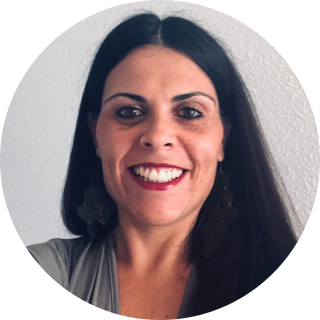

Almudena Garcia Sastre
Almudena Garcia Sastre is EU Policy and Advocacy officer at FIAN European sections. “For the past ten years, my career progressed in international contexts both in Europe and in Latin America, with experience within the EU institutions and the UN-system. I combined fieldwork in Latin-American countries with inter-disciplinary theoretical knowledge, at the crossroads of agrarian political economy, political ecology, and ecological economics. In the past, I worked for FAO, and in my current position at FIAN I am mostly following law-making processes and policy developments at the EU level for the implementation of the Farm to Fork Strategy. I have completed influencing work connecting social movements’ demands with relevant policy frame developments for the transformation of agri-food systems towards food sovereignty and grounded on human rights.”
Issues for the Global South: Food Sovereignty or Corporate Control
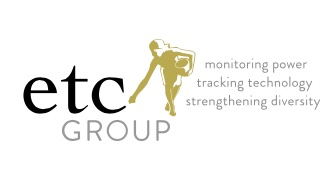

(video presentation)
ETC Group
ETC Group is a technology watchdog. We are a small, international, research and action collective committed to social and environmental justice, human rights and the defence of just and ecological agri-food systems and the web of life. We are aligned with diverse popular and social movements and civil society organisations who share our values, particularly in the Global South. Together we work to understand and challenge corporate-controlled techno-industrial systems based on scientism, to expose the dangers of the technological manipulation of life and ecosystems, and to build countervailing knowledge and power.
session 7: First steps into the agroecological transition
GOOD-Agroecology for weeds: Building an Agroecological Weed Management Network
The presentation focuses on describing the activities of the new Horizon Europe funded project “Agroecology for weeds-GOOD” and calls for joint actions in the fields of agroecological transitions and Agroecological Weed Management. GOOD is a 4-year Horizon Europe funded project that will develop an Agroecological Weed Management Network that encompasses an ecosystem of 16 Living Labs, aiming to improve knowledge co-creation, farmers’ decision-making, and end-user acceptance of Agroecological Weed Management approaches.
Contributors: Alexandros Tataridas, Maria Rosa Mosquera Losada, Ilias Travlos, Maria Ramos Garcia, Jose Paulo Sousa, Spyros Fountas, Lara Agnoli, Harm Brinks, Milena Simic, Milan Brankov, Vesna Dragičević , Helena Freitas


Alexandros Tataridas
Alexandros Tataridas is a Ph.D., M.Sc. Agronomist and Weed Scientist, currently Invited Assistant Researcher at the Centre for Functional Ecology at the Department of Life Sciences, University of Coimbra, Portugal. His research interests include agroecology, weed science, and invasive alien plants, specifically agroecological weed management. He is the Scientific Project Manager of the Horizon Europe funded project “Agroecology for weeds-GOOD”.


Helena Freitas
Helena Freitas received her PhD in Ecology from the University of Coimbra, in collaboration with the University of Bielefeld, Germany, and did postdoctoral studies at Stanford University, USA. She is Full Professor of Biodiversity and Ecology at the Department of Life Sciences of the Faculty of Sciences and Technology of the University of Coimbra since 2003 and holds the UNESCO Chair in Biodiversity and Conservation for Sustainable Development since 2014. She is currently Coordinator of the Center for Functional Ecology—science for people and the planet, Scientific Coordinator of FitoLab—Phytosanitary Laboratory of the Pedro Nunes Institute, and Board member of the Directors of the Associated Laboratory TERRA—Laboratory for the Sustainability of Land Use and Ecosystem Services.
Agroecology and the city: approaches and tools for interdisciplinary analysis of a peri-urban agrosilvopastoral system in Milan
The presentation aims to illustrate some first results of the interdisciplinary analysis dedicated to assess ecosystem services generated by agroecological practices in the peri-urban area in the Milan metropolitan city South-Eastern edges, where productive agroforestry systems are being implemented along with the keeping of laying hens on mobile coops between the tree lines.


Alice Giulia Dal Borgo
Alice Giulia Dal Borgo is Associate Professor at the Department of Cultural and Environmental Heritage, University of Milan, where she teaches Landscape and Environment Geography and Landscape Systems Analysis. She carries out theoretical and applied research activities on the analysis, protection and enhancement of environments and landscapes, sustainable development processes and environmental and socio-territorial regeneration with particular reference to agroecology practices, both in urban and rural settings, collaborating with territorial government bodies and local associations. Her latest publications include ” Luoghi e comunità. Storie di rigenerazione ” with Gambazza G. and Garda E., Mimesis – Kosmos, 2021 and “Agroforestry as a Driver for the Provisioning of Peri-Urban Socio-Ecological Functions: A Trans-Disciplinary Approach” with Chiaffarelli G. Capocefalo V., Schievano A., Bocchi S., Vagge I., Sustainability, 2023 (in press).
The specificities of each concept (permaculture, regenerative agriculture, organic agriculture): ethics, practices, issues, training, networks, certifications


Perrine Bulgheroni
International business lawyer Perrine Bulgheroni started a farm in the Normandy village of Le Bec-Hellouin that slowly became a profitable 20 hectares organic farm, growing 380 varieties of fruit, vegetables, herbs and medicinal plants and supplying both regular customers and restaurants. In 2011, a research team undertook a scientific study to assess the viability of their approach and to measure extraordinary productivity levels. Perrine has now left the farm and helps other farmers. She gives advice in France and abroad as to how to secure food production in a multiple crisis context and is looking forward to creating a new cooperative project. She also teaches and gives conferences. Perrine was an elected member of the Normandy parliament from 2010 to 2016. She has been awarded «Chevalier de l’ordre national du mérite» in 2018.
AGROECOLOGIST IN ACTION
Marsilea is a group of Italian agronomists passionate about agroecology and aiming to accelerate the transition of farming and agricultural supply chains to agroecological models. How? Through the imitation of nature and making connections. They strongly believe that agriculture can play a key role in creating value for the community and the territory from the environmental, social, and economic points of view.
We will present the group and its vision, the way we foster the transition toward agroecology, on which levels, and some case studies.


Stefania Caron
Stefania Caron is an agronomy consultant and enthusiastic worker in the agri-food sector, committed to shifting to a more sustainable and resilient system, and specialized in regenerative agriculture and agroecology getting practical experiences in the field.


Tommaso Gaifami
Tommaso Gaifami is an agronomy consultant at the Marsilea group, agroecologist, and agronomist. He collaborates with farmers, researchers, policymakers, and startups to create connections to foster agroecological transitions.
Moderator
The agroecological transition is a mid-term process, which can take several years. The initial steps are key, albeit sometimes poorly documented. This session will address knowledge, approaches, and tools enabling this transition, while also paying attention to the nature of innovations supporting the process.


Stéphane Michel Bellon
Stéphane Bellon is a researcher at INRAE’s Ecodevelopment Unit. He works on the dynamics of transition in agroecology and organic farming, focusing on diversified and multi-stratified systems, particularly in Europe.
session 8: Long-term research for agroecology
Integrated European Long-Term Ecosystem, critical zone and socio-ecological Research
This session will start with a lecture by Taru Sandén on eLTER research infrastructure and how agroecology fits in into this kind of long-term research network. Thereafter one of the liberating structures will be used to interactively discuss the role of agroecology in long-term research today and in the future.
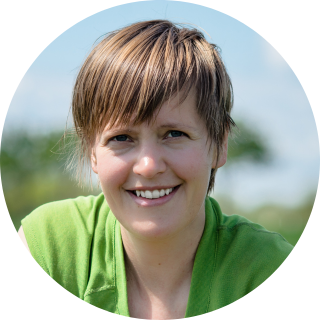

Dr. Taru Sandén
Taru Sandén works as a Senior Expert at the Department for Soil Health and Plant Nutrition at the Austrian Agency for Health and Food Safety and as a Lecturer of „Soils and Food Security“ at the University of Natural Resources and Life Sciences, Vienna, Austria. She works with agricultural soil functions, including participatory action research (Tea Bag Index, SoilPlastic App) and long-term field experiments. She holds an MSc in Environmental Science from the University of Gothenburg, Sweden, an MSc in Environment and Natural Resources from the University of Iceland, and PhD degree in Geography, also from the University of Iceland.
Digital twins at Rothamstedt
This presentation will take you through the set-up and aims of the North Wyke Farm Platform at Rothamsted Research together with its use as a demonstrator farm-scale Digital Twin.


Professor Paul Harris
Professor Paul Harris is an expert in environmental monitoring, data science, and spatial statistics. He has project led the North Wyke Farm Platform at Rothamsted Research since 2017, which is a 4-farm-scale experiment delivering open data since 2010. Current research initiatives include those relating to Digital Twins at the farm-scale based on the North Wyke experimental site.
moderator



Marcos Lana
Marcos Lana is Secretary General of Agroecology Europe and Associate Professor at SLU. His work focuses on the use of crop models to assess the impact of climate change and agronomic management on crop performance, so as to propose suitable adaptation strategies concerning crop production systems and other ecosystem services. He is also involved with the development and adoption of agroecology as a tool to support sustainable farming systems.
Complementarity of different types of research infrastructure investigating regenerative soil management
How can soil research establish the relationship between soil management measures and soil quality? What options in terms of research infrastructure do we have available and how can they complement each other?
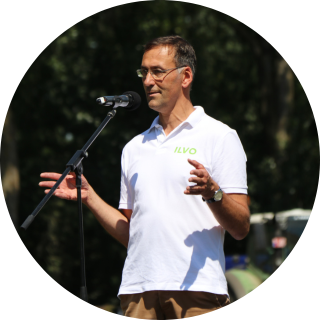

Koen Willekens
Koen Willekens, PhD, is Senior researcher of Soil Management and Cropping Systems at ILVO, Plant Sciences Unit. He is a senior scientist specialized in soil management with respect to its effect on crop performance, soil quality, nutrient dynamics, and carbon sequestration. His work focuses on agroecological and organic cropping systems design. He has a broad experience in the field of small-scale composting.
A Pipeline for Extracting Evidence of Crop Loss from Scientific Reports
The presentation will showcase a text mining pipeline designed to extract and summarise reported pest impacts on target crops from published scientific papers. The utility of knowledge graphs, large language models, and semantic querying for providing direct access to Global Burden of Crop Loss events will be discussed.


Chris Baker
Chris Baker is Professor and Science Director at Rothamsted Research. Chris graduated in agriculture and environmental sciences from Newcastle University and completed a PhD in soil microbiology at Cardiff University. For the last twenty years he has been pioneering semantic interoperability solutions and applying them to biomedicine, biodiversity, global health and agriculture. He is known for his ground-breaking book Semantic Web Revolutionizing Knowledge Discovery in the Life Sciences.
EJP SOIL—European Joint Programme on Agricultural Soil Management: Focus on the ARTEMIS project
The presentation aims to introduce the EJP SOIL programme, particularly focusing on ATEMIS project, showing and discussing the activities in progress related to the interdisciplinary analysis dedicated to improve knowledge on the resilience of specific agroecological systems to climate extremes and the influence of agroecological strategies on soil ecosystem services and yield stability, also considering the outcomes from living labs that allow to deliver deliver science-based practical knowledge on sustainability of agroecological systems to practitioners.


Claudia Di Bene
Claudia Di Bene is Senior Researcher in agronomy and soil science at CREA—Research Centre for Agriculture and Environment in Rome, Italy. Her current research focuses on topics related to agroecological strategies to assess the effects of cropping systems diversification on nutrient management and carbon sequestration for optimizing resource use efficiencies and crop yields stability at different scales, also using simulation models under climate change scenarios. She holds a MSc in Agricultural Science from University of Pisa, Italy, a MSc in Global Environmental Protection and International Policies from University of Tuscia, Italy, and a PhD degree in Agriculture, food, and Environment from Sant’Anna School of Advanced Studies, Pisa, Italy.
session 9: Agroecology for socially and environmentally just food systems: perspectives from social movements
In order transform food systems transition to agroecology, we need to understand the bigger socio-economic context that enables or hinders the transition and how principles such as participation, fairness, connectivity, etc. can be implemented successfully. In this panel discussion we will have different voices from the Food Sovereignty, Degrowth, Youth, Social, and Climate Justice movements to exchange on the challenges, opportunities, and synergies that can converge among movements to create resilient food systems.


Vincent Liegey
Vincent Liegey is an interdisciplinary researcher, lecturer, and freelance writer on Degrowth. He is the Coordinator of Cargonomia, Degrowth research and experimentation center in Budapest, and Coordinator of the International Degrowth Conferences Support-Group and of the French Observatory on Degrowth. He is also co-author of Exploring Degrowth (Pluto Press, 2020), Décroissance, Fake or Not and Sobriété, La Vraie (Tana Edition, 2021 and 2023).


Valéria Kovács
Valéria Kovács is an activist and organizer of Fridays For Future Hungary. “I grew up in a village near Budapest and have been a nature enthusiast for most of my life. After starting high school in the city of Budapest, the controversial connection between humans and nature struck me, so I joined the climate strikes in 2019 and became an active organizer during COVID-19. I am currently studying architecture, while still working with my mates in FFF to remind and educate people about the environmental crisis.”




Attila Szőcs Boruss
Szőcs is a passionate advocate for agroecology and improved legislation in support of peasants’ rights and access to land. As a leading campaigner for raising awareness of land grabbing in Romania, he has served as President of the Eco Ruralis Association.
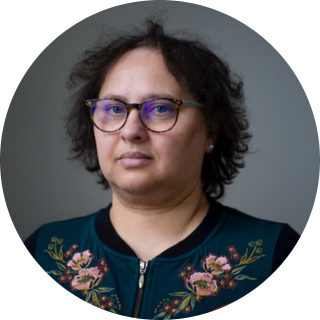

Judit Bari
Judit Bari is a community development expert. She studied biology at ELTE University in Budapest and Community Development at the International People’s College in Denmark. Judit leads a development and research agency (Hiszako.hu). Recently, she works to strenghten a green alliance (Green Platform) with human rights lawyers and social, environmental experts in order to support Roma communities’ access to and participation in the implementation of European Green Deal. The alliance also aims to build capacity for strategic litigation related to environmental injustice and inequalities, caused by damage and degradation and environmental racism.
Moderator


Lili Balogh
Lili Balogh is the President of Agroecology Europe and the Hungarian Agroecology Network Association. Lili is a bioengineer and tropical agronomical engineer, involved in the international Food Sovereignty and Agroecology movement for the past decade. She has worked in several eco-political NGOs to promote agroecology and regenerative food systems in different parts of the world. For the past six years, she has focused on strengthening the Hungarian Agroecology movement. She worked as the Program Manager of Greenpeace Hungary for a year, which she left to engage more actively in supporting the transition to sustainable food systems. In February 2022, Lili became the President of Agroecology Europe Association and the Hungarian Agroecology Network Association. She began her own farm in West Nógrád in 2018, where she started applying holistic management, regenerative agriculture, permacultural, and agroecological principles.
POSTER SESSION PRESENTERS
The Agroecology Coalition's role in building strategic alliances and networks to scale out of Agroecology



Amelie Steu
Amelie Steu is Associate Coordinator at the Agroecology Coalition, whose role is to build strategic alliances and networks to scale out Agroecology. “I am a young professional driven by the shift towards organic and agroecological food systems in order to address some current challenges such biodiversity loss, climate change, social inequities and food insecurity. I worked for 3 years at IFOAM Organics Europe in the Policy and Partnerships Units. I also undertook an internship at IFAD during my Masters’ Degree in Governance of International Relations at Sciences Po Toulouse.”
Private Funding for Agroecology & Sustainable Food Systems - The role of foundations


Clara Lina Bader
“I am an M.Sc. student of Resilient Farming and Food
Systems at Wageningen University & Research with an interest in agroecology, human rights, intersectional feminism, and understanding pathways towards an equitable transformation for a just society.”
Tailored pathways and agroecological action for reviving farmland biodiversity


Dr. Diana Sietz
Diana Sietz is Group Leader at the Thünen Institute of Biodiversity, Gemany. She develops targeted agroecological action to enhance biodiversity in agricultural landscapes. Her work provides insights into the suitability of specific farming approaches in order to tailor policies to the characteristics of specific land systems and increase the policies’ effectiveness. Diana Sietz is a lead author of IPBES Nexus Assessment and coordinates Future Earth’s Global Land Programme (GLP) Working Group on “Archetype Analysis in Sustainability and Land Governance Research”.
Finding solutions for pushing farm transition: permaculture as a design of an agroecology system



Jacopo Goracci
Jacopo Goracci is a farm manager at Tenuta di Paganico Farm, Paganico (GR), Italy. “I’m an agronomist and have lived and worked for 18 years on the Tenuta di Paganico, an italian organic silvopastoral farm. I’m curious, I love research applied to agro-ecosystems and to the connections between humans, animals and landscape.”
Co-designing new business models for soil health – first insights from a case study in Germany
Combination of agroecological practices for improved soil quality


Gerald Schwarz
Gerald Schwarz has a Ph.D. in agricultural economics from the Humboldt University Berlin and works since 2009 at the Thünen Institute of Farm Economics in Germany as project coordinator. His work focuses on transdisciplinary research into sustainable farming and food systems and agri-environmental policies. Dr. Schwarz has been involved in a variety of projects on agroecology, organic farming, and innovative governance approaches in agri-environmental policies and coordinated projects on these topics in the EU’s FP6, FP7 and Horizon 2020 programmes.


Elke Plaas
Elke Plaas has a Ph.D. in agricultural economics from the Georg August University Goettingen and is senior research fellow at the Thuenen Institute of Farm Economics. Dr. Plaas’ main areas of work are: socio-economic assessment of (soil) biodiversity, agricultural policy and environmental economic issues in Europe, CEEC and China, individual farm analysis of farms, water economics and rural development. She has been involved in several projects on biodiversity and sustainable farming systems in Biodiversa ERA, BELMONT and Horizon 2020 programmes.


Marie von Meyer-Höfer
Marie von Meyer-Höfer has a Ph.D. in agricultural economics from the Georg August University Goettingen. She is senior research fellow at the Thuenen Institute of Market Analysis. Dr. von Meyer-Höfers’ main area of work is consumer reserach focussing on transdisciplinary research into the transformation of farming and food systems. Here she analyses perceptions, preferences and acceptance levels of different social groups concerning food production processes and products. She has been involved in several projects on carbon farming, animal welfare, organic agriculture and will be part of the SoilServicEs project starting in summer 2023.



Jana Marjanović
Jana Marjanović is an Environmental researcher with a specialization in applied Ecology. She is currently a PhD Student at the Doctoral School of Environmental Sciences at MATE University. She is currently working in energy procurement and sustainability business. Her research areas of interest are renewable energy and the application of sustainable practices in agriculture and agroecology.
Assessing the agroecological performance and sustainability of Community Supported Agriculture (CSA) in Flanders, Belgium


Ruben Savels
Ruben Savels holds a BSc and a MSc Degree in Bioscience Engineering: Agricultural Sciences from Ghent University, and is currently involved as a teaching assistant in courses on agricultural and environmental economics and management in several master programmes at the university. Additionally, he is engaged with doctoral research on the operationalization and institutionalization of agroecology in Flanders, Belgium.
Assessing soil health indicators in an organically managed grassland in Norway


Sara Hansdotter
Sara Hansdotter is Advisor at the Norwegian Centre for Organic Agriculture (NORSØK) in Tingvoll, Norway. Sara is an agroecologist with a strong interest in system studies, but also in soil science. She works with research and dissemination within the wide range of “organic agriculture”.
PATH2DEA - Paving the Way towards Digitalisation Enabling Agroecology for European Farming Systems


Dr. Stefan Pfeiffer
Stefan Pfeiffer has a PhD in Biotechnology from the University of Natural Resources and Life Sciences (BOKU) Vienna and experienced various roles in research and innovation in academia and industry. Stefan Pfeiffer is employed by AIT Austrian Institute of Technology as Business Development Manager in the Competence Unit Bioresources, where he is responsible for managing research and innovation projects, strategic direction of research activities and for successful technology transfer to industrial stakeholders. Stefan Pfeiffer is coordinator of the three-year Horizon Europe Coordination and Support Action “PATH2DEA”, which aims to promote digitalization as an enabler of agroecological farming systems in Europe.
